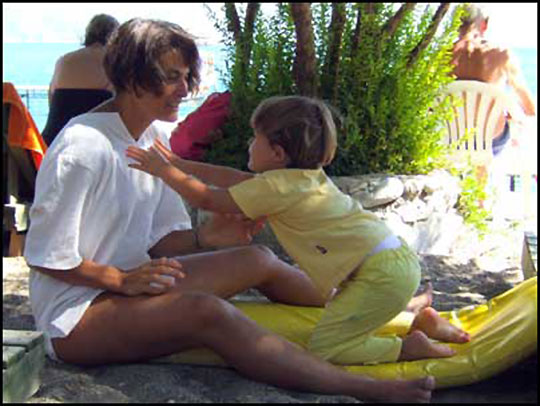New Frame New Meaning, Reframing Revisited from an Artistic Perspective
Reframing is a powerful therapeutic technique systemic therapists like me internalise as a way of being, and express in their contact with the world of stories we are told and experience. All family therapists need to be systemic in their training and understanding. You can go to my earlier post for clarification of these concepts. This, however, is not really what I am going to discuss today. When you change the frame the meaning of the content within it changes. My husband and colleague Stephen produced an art work that captured the essence of this way of seeing I feel excited to share it with you.
What is Reframing?
Family therapy is based on Murray Bowen‘s family systems theory. The idea is that as individuals we exist and define ourselves in relationship with our environment. The first environment we come into contact as we are born is our families and their network. Think about the network you were born into. Bowen says ‘That which is created in a relationship can be fixed in a relationship.’ As we grow up we continue gathering and interpreting experiences. We associate each experience with a story. Over time the story line becomes part of our identity. As we differentiate from our environment and from these stories we mature emotionally, develop full individuality and finally experience close relationships.
I am told I was a difficult baby. I also remember crying a lot as a child, saying ‘I don’t know why I am crying’. When I hear a client someone being described as self sufficient, an easy going child we may take these first level descriptions and be satisfied. Some, however, will develop several layers of meaning by reframing these stories. When a bigger picture is added we may reason that in both cases our needs as children were not met.
We might interpret these stories differently. I, as a child, constantly demanded attention, which my family was unable to deliver. My client, on the other hand, intuited that the attention he required was not going to come, and therefore stopped asking for it and relied more on his own resources.
Today, my client understands the role he plays in his marital difficulties. He realises how he continues being self sufficient, not needing his wife emotionally, not taking risks of being close therefore failing to relate to her at an intimate level. I may also take my perception of myself further, thinking that I was not really a difficult, winging child but a brave and perseverant character.
Each of these new frames has the potential to have significant influence on how we are in our day to day interactions with our family, friends, colleagues and life events, such as relating to our kids, driving through the traffic, and achieving tasks. Moreover, changing one person’s perception has an effect on the broader systems they are part of.
When you change your immediate systems also change. The results of such changes cannot be predicted with certainty however; because we are dealing with human activity systems which are not subject to mathematical laws.
You and I can only play our part in this dream-world without attachment to the results. Isn’t what Mahatma Gandhi refers to when he says: “You must be the change you want to see in the world.”? And so ‘our’ world will take care of itself as a result.
Reframing Personified: Viktor Frankl’s Life and Work, Logotherapy
Viktor Frankl is a Viennese psychiatrist and neurologist who survived the Holocaust where he lost his parents, his wife and his unborn child. His ability to reframe his losses and suffering led him to write a book ‘Saying Yes To Life In Spite Of Everything, Man’s Search For Meaning’ and create a therapeutic approach known as Logotherapy. Its main premise is that primary motivational force in life is not searching for enjoyment or power but to find the meaning of our existence.
Stephen Bray, Psychotherapist, Author, Artist
Stephen when he was asked to make serious decisions about people’s mental health at the age of 17, was probably the youngest mental health officer of UK in late 1960’s. The responsibility led him to train in a wide range of psychotherapeutic approaches such as Social Casework, Gestalt, NLP, Group Work, Family Therapy, and others.
He learned from pioneers and he himself became a pioneer in early 2000 when he taught Family Therapy in Turkey at Çare-Der. Even though he moved away from teaching and practicing since 2010 his contribution to the field is still revered and he regularly gets invited to present.
Even though helping became part of his personality after 40 years of practice, nowadays he is attracted to other realms that are more relevant for his artistic temperament. As well as being a real ‘hands on dad’ to our daughter and overseeing the marketing and the development for my Online Family Therapy practice he concentrates on writing and taking photographs. He is the author of ‘Photography and Psychoanalysis’:The Development of Emotional Persuasion in Image Making’ and ‘Photography and Zen’ which refers to the unity between subject, photographer, equipment and technique.
When you follow this link you will find the artwork he created few years ago which I want to share with you now. In order to appreciate its message you need to stay focused in front of the screen for about 4 minutes. You will notice the subtle changes in the frame and its effects on your perception of the inside of the frame which remains intact during the whole process.
I am hoping that this artwork helps to loosen your beliefs about how you perceive people, events, and everything else. Notice how the changes are so gradual you hardly register them. Life is often like this, changes occur slowly, yet when you look back you can see the world is no longer as it was, Only then reframing can become an option for you.
Practicing Reframing
Even though we often limit ourselves with one way there are many ways of looking at the same experience. Reframing is a way to present alternative interpretations or explanations. This in turn deepens your understanding and activates the resourcefulness needed to facilitate positive change.
1) Think of a problematic situation for you and the solutions you have come up with.
Let’s say your 8 year old is impatient to go out and play at every opportunity in school and at home; the school work lags behind. Her teachers complain, which makes you feel criticised and inadequate. You might put pressure on your child, you might even think you need the help of psychologists to ‘cure’ her ‘impatience’.
2) Now focus your attention to view the situation with a different frame.
What if after listening to Özgür Bolat, you thought that this was a healthy 8 year old behaviour and that what is expected from her isn’t really age appropriate?
3) Decide what you must do?
You could, for example, help both your child and the teacher find betters way to accommodate to the tasks at hand required by the ministry. You might ask the help of a psychologist to help you with this task. You might write to your MP. You could, most likely, come up with other alternatives, in the light of the new frame in which you understand your child’s problem.
4) Think of another problem with which you felt stuck.
5) Treat yourself to a new and more helpful frame.
6) Enjoy the new sense of relief and purpose.
I know that it is not always easy to come up with new frames. If you feel stuck, depending on the privacy and the seriousness of the situation you might want to talk to a wise friend or an expert.
Attribution 2.0 Generic (CC BY 2.0)image:Scarleth Marie





